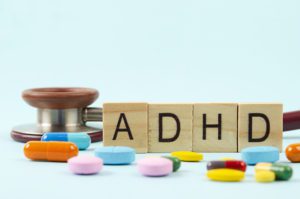Effects of Medicating ADHD in Children
Written by: Allison Bates, M.S.

According to some pharmacies, antidepressants for teenagers have risen 38% from 2015 to 2019 (while adult prescriptions only rose 12% during that same period). As that study was pre-pandemic, the results now are expected to be dramatically higher. Many youths are even on more than one psychotropic medication at once, a term known as ‘polypharmacy’.
More often than not, the cycle of medication starts with a diagnosis of ADHD. Research from the University of Florida “found there to be a 40% chance that a 3-year-old diagnosed with ADHD would end up taking three kinds of mental health drugs by the age of 8”. As we live in a world full of instant gratification, both doctors and parents are looking for faster results and less effort on our part; however, many people don’t realize the negative ramifications medicating can have. Some of the common, short-term side effects of ADHD medication are lack of appetite, weight loss, sleep issues, and tics. Longer term effects of ADHD medication can be irreversible reduction of height and weight, anxiety issues, emotional ‘blunting’, and possible depression.
Even so, medicating children with ADHD can have positives outside of improvements in student grades. Taking ADHD medication has been shown to help improve shame and guilt that can transpire from an unmedicated child in an academic environment where they are failing. ADHD stimulants can also lower the rate of substance use, lessen risk of motor vehicle accidents, and lower criminality rates.
If your child has ADHD or symptoms of where do you start? Medication is a tool in the toolbox of skills to use and a heavy tool, at that. The American Academy of Pediatrics “recommends starting with school and family interventions before trying medication”. Some of those ‘tools’ include:
- Counseling
- School accommodations
- Organizational and study skills training
- Lifestyle changes, such as creating and maintaining a schedule
References:
https://childrenshealthdefense.org/defender/medicating-kids-polypharmacy-health-problems-cola/
https://health.usnews.com/health-care/patient-advice/articles/2017-10-04/are-we-overmedicating-our-children-with-adhd
https://www.medicalnewstoday.com/articles/long-term-effects-of-adhd-medication#side-effects
